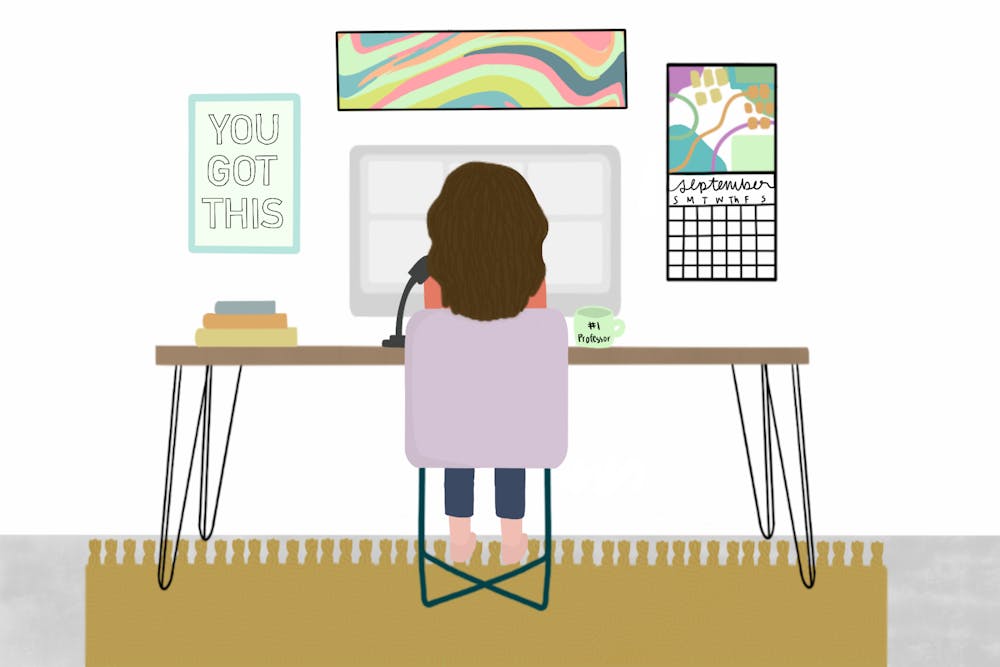With how jarring the changes that are happening this semester are, students often forget the time and effort their professors are putting in to make this semester work.
One of the biggest things professors said they feel like they are missing this semester is having a face-to-face connection with their students. Rich Showman, professor emeritus of biological sciences, came back from retirement last semester to teach a class just a few weeks before the pandemic hit and was disappointed he could not interact with students like in semesters past.
"I'm not able to connect with them on a personal level,” Showman said. “That makes the teaching, for me, very hard.”
Similarly, Jeff Persels, associate professor in the department of languages, literatures and cultures said teaching a class over Blackboard Collaborate Ultra is like “talking into the void."
"I feel like I’m doing a radio show every time,” Persels said.
Other professors are coping with unprecedented numbers of emails from confused and worried students.
“[One] challenge is just the sheer number of emails and phone calls and Team interactions with individuals to answer their questions,” David Rocheleau, associate professor of mechanical engineering, said. “The greatest challenge is trying to stay connected and involved and respond to a large number of students in each of my classes.”
Evaluating students this semester has also been a big obstacle for professors to overcome. Because of concerns with internet connectivity and academic integrity, some professors are shifting their grading to rely on less tests and more other assignments.
For the exams that can’t be avoided, professors are having to make several formatting choices that are likely to change throughout the semester as professors become more accustomed to the technology and learn what works for their students. Ramy Harik, associate professor of mechanical engineering, said he is using the first exam as an experiment. After the test, he plans to ask students point-blank if they believed the test was fair.
“It might fail miserably, but I will learn from it and we will do better for test two,” Harik said.
Rocheleau said "it's a balance of being empathetic of their situation" while continuing to hold academic standards "required by the university."
Professors also have to contend with the same — and more — Blackboard issues as students. Some said they feel like they were pushed into using Blackboard for teaching classes, which they said has limited functionality and can be confusing.
“Blackboard is not that intuitive,” Harik said.
Many of our professors are working tirelessly to adapt to the current situation, experimenting on what works best and searching for ways to foster the personal connection they had with students in the physical classroom.
Last semester, Rocheleau stumbled on a way to add a bit of that personal element when classes went online. When Rocheleau’s class last semester heard his new puppy whining in the background, they convinced him to show the puppy off on the call. Class engagement regarding the golden retriever pup continued until the end of the semester and bled into this one with students asking to see her and suggesting names for her. Butter, as she came to be known, helped Rocheleau and the students feel connected during that difficult time.
“There was a personal connection there, and I think it’s important, and that’s a challenge now, is to maintain that personal connection when we’re doing everything remotely,” Rocheleau said.
These spontaneous moments, where we get to remind each other that we are all people, and all going through this together, are so valuable, especially in an online setting.
Through all this, students need to be offering encouraging and useful feedback to their professors and be patient and understanding because this really is still a work in progress.
“It’s going to sound so cheesy, but it is true, that we are all in this together,” Harik said. “This is messed up for everyone, and we’re going to try to make the best out of it.”

